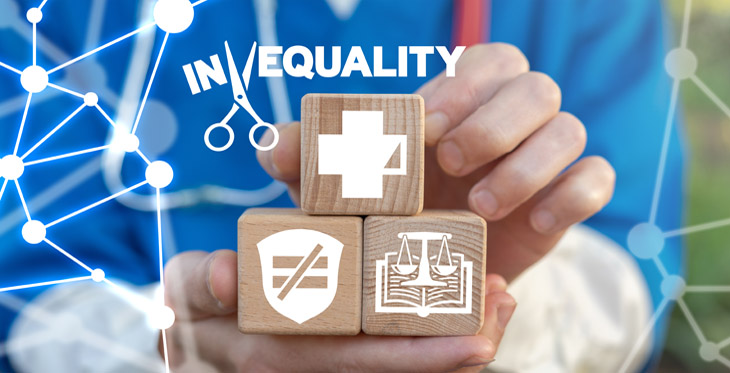Since the founding of the United States of America, we have made significant strides in advancing health justice, but the accompanying fight to ensure that every individual has a fair opportunity to achieve their optimal level of health is shaping up to be one of the defining challenges of our time. One of the major barriers to accomplishing this goal is the lingering presence of health inequalities — the differences in health and health care between population groups that occur across the life course and in many dimensions, including race/ethnicity, socioeconomic status, age, location, gender, disability status and sexual orientation.
In my book, The Political Determinants of Health, I detail how in the United States, the nation’s health is not an organic outcome. It is not a coincidence that certain groups of Americans experience higher premature death rates or poorer health outcomes than others resulting in a cost of over $300 billion per year. It was not a fluke that some groups experience poverty for generations, blocked from attaining the American dream. Today, we recognize that a variety of forces collectively impact our health and determine the quality and the extent of our life on this earth, including social, environmental, economic, behavioral health, healthcare, and genetic factors. It is true that air pollution, climate change, toxic waste sites, unclean water, lack of fresh fruits and vegetables, unsafe, unsecure, and unstable housing, poor-quality education, inaccessible transportation, lack of parks and other recreational areas, and other factors play an outsized role on our overall health and well-being. They increase our stress, expose us to harmful elements such as particulate matter, and limit our opportunities to thrive.
However, too often we stop at those drivers of inequities failing to dig even further to see the depths of the problem and understand their root causes and distribution. As a result, we miss the link between all these generally accepted determinants of health and their political roots - the political determinants of health. Consider for example, the issue of asthma among many racial and ethnic minorities. Many public health researchers have successfully identified the culprit of the disproportionate rates of asthma in communities of color. In one community it was found that a bus depot was responsible for the extremely high rates of asthma among the residents who lived near it. In another community, a major highway in the middle of that community was found to contribute to the higher rates of asthma among children owing to the exhaust and dust from the vehicles. Thankfully, there has been a surge in research supporting the social determinants of health and their role in driving health inequities such as those in this example with the bus depot and highway. However, in accepting that on its face, we overlook the bigger picture – the critical driver that created, perpetuated and exacerbated health inequalities. The political determinants of health represent the initial improper conduct that has manifested in the health inequities we see or experience across the United States.
These political determinants of health inequitably distribute social services, health care, behavioral health, and public health opportunities and has led to the disproportionalities in health status among population groups. High obesity rates, maternal mortality, infant mortality, gun violence, depression, opioid addiction, substance use disorders, diabetes, heart disease, cancer, HIV/AIDS and many other health problems can be firmly linked back to political action or inaction. By understanding the political determinants of health, their origins, their impact, and interconnection with the social determinants of health, we will be better equipped to develop and implement actionable solutions to close the health gap.
Health injustices will persist, like they have for generations in America, unless public health leaders, healthcare leaders, behavioral health leaders, and other leaders in conjunction with policymakers, pause to consider the implication of health inequities, seriously tackle their root causes, and prioritize health equity in all policies. With our demographic shifts, reduced life expectancy, worsening health status, and declining health care options, we can no longer afford to embrace a partial commitment to equality in health care or tolerate the dearth of public policies addressing health inequalities.

